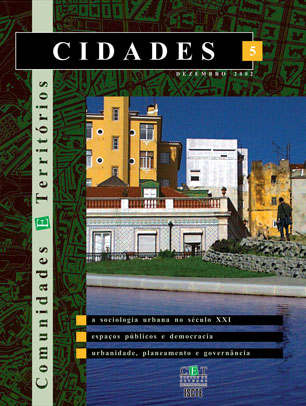Urban Sociology in the Twenty-First Century
Keywords:
new and newest urban sociology, society analytical paradigms and historical contexts, spatial patterns and urban processes in a globally urbanized world, global and local, individualism and communalism, spaces of flows and spaces of places, 21st century urban sociology subjectsAbstract
Starting from a question that the author himself posed in 1968, about the possible existence of an urban sociology - in a position that would soon be placed as a fundamental reference at that time regarding the urban issue - this text opens up different assumptions which now allows an affirmative answer to the question posed back then. Commenting on the two fundamental paradigms (represented in the past by the author and also by H. Lefebvre), which since then integrated the "new urban sociology", the author justifies the obsolescence of this position, in a context of widespread urbanization on a global scale and in face of the rise of what is called the Information Age, and the rising need for a "brand-new" sociology of the cities. This new paradigm is then sustained by three fundamental axes: a functional level, in which the network society organizes around the opposition of the global and the local; a knowledge context, in which society is characterized by the opposition between individualism and communalism; and spatial form, on the basis of tensions and articulations between the space of flows and the space of places. At the end of the article, the author systematizes themes for a 21st century urban sociology, emphasizing the need for new instruments of analysis, both in conceptual terms and in the framework of new methodologies.
Downloads
Published
Issue
Section
License
CIDADES, Comunidades e Territórios by DINÂMIA'CET-Iscte is licensed under a CC-BY licence.






